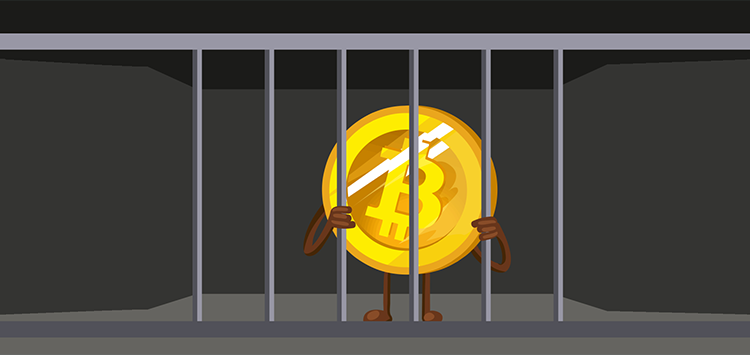

































Algeria imposes total ban on cryptos, offenders risk 1 year jail term and $7,700 fine
 BANK
BANK
 BTC
BTC
 ALGERIA
ALGERIA
 FORCE
FORCE
Algeria has announced a sweeping ban on all crypto-related activities, with violators risking up to one year in jail and $7,700 fines. The newly amended law prohibits the buying, selling, trading, holding, and mining of Bitcoin and other digital assets.
The decision, reported by Algerian news and information portal Fibladi, marks Algeria’s firm stance against the global crypto boom. The country now joins a growing list of African countries that have banned cryptocurrency and related activities.
Enacted on July 24, Law No. 25-10 bans the issuance, sale, purchase, possession, use, and promotion of all crypto assets, including Bitcoin, Tether, and others. The law also criminalises mining, the use of digital wallets, and the operation of crypto exchanges.
The ban comes amid a global push to regulate cryptocurrencies. Algeria has monitored the rise of digital currencies for years. Authorities cite concerns over money laundering, terrorism financing, and economic instability as key drivers. The law aligns with guidelines from the Financial Action Task Force (FATF), which focuses on global financial crime prevention.

Crypto use has grown among Algeria’s youth, especially in southern regions. Low electricity costs have fuelled off-grid mining operations. The government aims to protect the national grid and financial system from these activities.
Algeria first restricted cryptocurrencies in 2018 under its financial laws. The latest ban expands the scope. It now includes mining and digital wallets, signalling a more aggressive approach.
Algeria crypto ban part of a regional trend
Algeria is not the only African country to shut its doors against crypto. Several countries have imposed similar bans, wary of the risks posed by unregulated digital markets. Egypt banned cryptocurrency trading in 2018. The decision stemmed from anti-money laundering concerns. Egypt’s Dar al-Ifta, a religious body, also declared crypto haram (forbidden) due to its speculative nature.
Morocco followed suit in 2017. The Central Bank of Morocco prohibited digital currencies as legal tender. Fines were introduced for violations, aiming to shield consumers from market volatility.
Algerian officials stand by the decision. The Bank of Algeria and the Banking Commission plan to boost monitoring efforts. They argue the ban safeguards the economy from crypto’s volatility and anonymity.
Although the decision may also deter tech investment, blockchain development, a growing field, relies on crypto-friendly policies. Algeria risks falling behind nations that embrace the technology.

But historical examples suggest bans may not halt adoption. Crypto-related activities continued unabated despite Nigeria banning cryptocurrency exchanges in 2021. The Central Bank of Nigeria directed financial institutions to disconnect accounts linked to crypto transactions, citing threats to the national financial system. Despite the ban, enforcement proved challenging, with many Nigerians turning to peer-to-peer platforms. Similarly, China’s 2021 crypto ban shifted trading to decentralised platforms. Algeria could face a similar outcome, with enthusiasts turning to underground networks.
Algeria’s ban highlights Africa’s divided stance on cryptocurrencies. Countries like the Central African Republic broke new ground in 2022 by becoming the first African country to adopt Bitcoin as legal tender, following El Salvador’s example. The country equally launched its official memecoin $CAR earlier this year and is championing real-world use cases of digital assets.
Also read: Lagos 25-day blackout: residents in parts of Lekki, Ikotun, Ojota, Agege, Yaba groan
Likewise, Nigeria, which was once hostile to crypto adoption, is now fully embracing and seeing potential in digital assets, while the North African countries are hell-bent on prioritising stability.
For Algerians, the ban closes legal avenues for crypto participation. Many relied on digital assets for remittances, especially from the diaspora, and as an investment option amid economic uncertainty. The long-term consequences remain uncertain as the digital economy evolves, even as the global crypto market, worth trillions, continues to challenge traditional finance.

